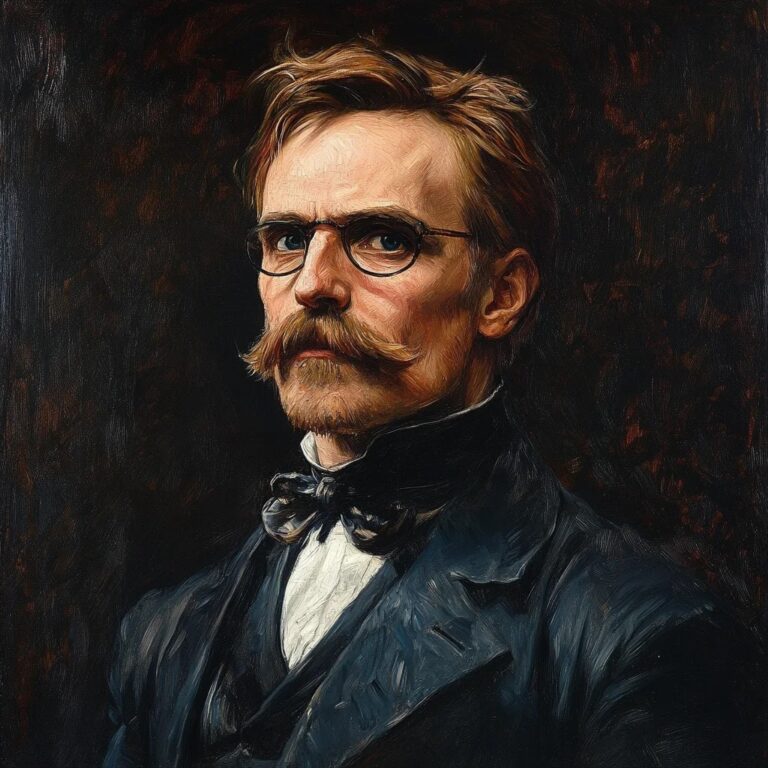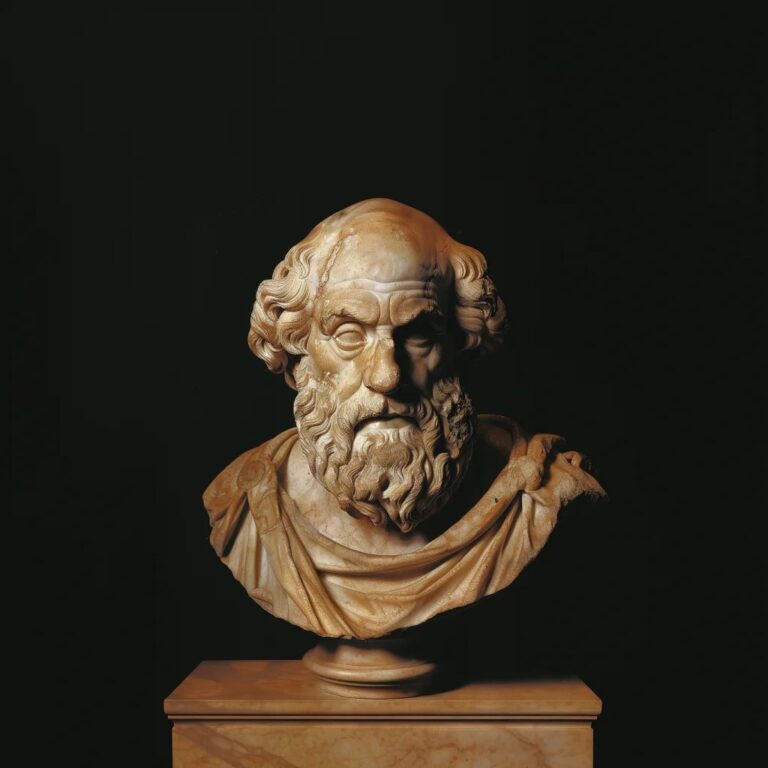Friedrich Nietzsche was born on October 15, 1844, in Röcken, a small village in the Prussian province of Saxony.
Nietzsche was named after King Friedrich Wilhelm IV of Prussia, as he was born on the monarch's birthday.
Nietzsche showed an early talent for music, composing several piano pieces and hymns before he turned 14.
His father, a Lutheran pastor, passed away when Nietzsche was only five years old, which had a profound impact on his life.
Friedrich Nietzsche attended the prestigious Schulpforta boarding school, where he excelled in classical studies.
He served as a professor of philology at the University of Basel at the young age of 24, one of the youngest ever to hold such a position.
Nietzsche's health was frail, and he suffered from severe migraines, digestive issues, and deteriorating eyesight throughout his life.
He was friends with the famous composer Richard Wagner but later had a falling out due to differing philosophical views.
Friedrich Nietzsche never married, though he proposed to Lou Andreas-Salomé, a Russian-born psychoanalyst and writer, who rejected him.
His most famous works include 'Thus Spoke Zarathustra,' 'Beyond Good and Evil,' and 'The Genealogy of Morals.'
Friedrich Nietzsche famously declared that 'God is dead' in his work 'The Gay Science,' a statement that reflected his views on the decline of traditional religion.
He coined the concept of the 'Übermensch' or 'Overman,' which he described as a goal for humanity to strive towards in overcoming the limitations of conventional morality.
Nietzsche's sister, Elisabeth Förster-Nietzsche, controversially edited and published some of his works after his death, leading to misinterpretations of his philosophy.
In 1889, Nietzsche suffered a mental collapse, possibly due to syphilis, and spent the remaining 11 years of his life in mental and physical decline.
Despite his controversial ideas, Nietzsche's work has had a lasting impact on existentialism, postmodernism, and numerous other intellectual movements.


